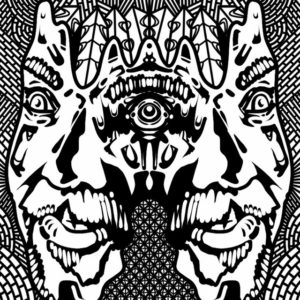Originally songwriter-guitarist Duane Bartels intended to visit New Orleans for a day. That was seven-and-a-half years ago. Not only is he still drawing oxygen in the Crescent City, but the California native has also released two albums of original material since then. His latest, Electric Baby Carriage, an ode to his old van, “Baby Carriage,” and the band’s current electric guitar sound, picks up where his 2018 commendable The Ballad of Johnny Loveless (released as BBB and the Boys) left off.
Over time, Bartels has moved out of his hardcore punk rock baseline and assimilated more into the eclectic musical confines of New Orleans. His songwriting continues to mature, and his arrangements—mostly his ideas—are much more horn-powered, rich and sophisticated. Yet just because his current city of choice has influenced his musical evolution, Electric Baby Carriage doesn’t try to be a classic New Orleans record. Rather, it’s a wide-aperture Americana focus with radio-friendly rock, pop, jazz and funk influences woven to craft its own signature. Bartels’ pipes are more on the tenor side, and he often sings short, staccato-punchy phrases that enable his three-piece horn section (sax, trumpet, trombone) plenty of room to dance, groove and snake around the lyrics.
Several of Bartels’ songs are based on failed relationships, but “Paper Mache” closes with the realization that love isn’t impossible; it’s all around you. He writes metaphorically, such as on “Hurricane,” where a rocky relationship can feel like being trapped in Mother Nature’s freakish catastrophic onslaught.
There are lots to take note of in Bartels’ songs. “Messin’” has a ’40s swing intro before settling into a steady rock beat and bluesy harmonica; “Passion Project” is built on an infectious rhythmic pulse inspired by gypsy jazz Bartels heard walking down Frenchmen Street. “Always Got You on My Mind” closes with the horns playing abstract, quasi-symphonic notes bordering on improv jazz. Often towards the end of a song, the arrangement veers into something unexpected so Bartels’ last verse has the spotlight for an added emphasis. Fun and interesting stuff, Bartels certainly fits in with his adopted city’s musical diversity.




